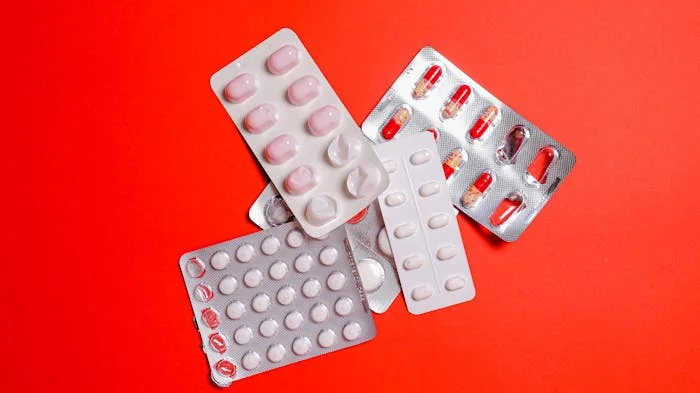Mixing Imodium & Alcohol: Side Effects, Interactions & Risks
No one likes dealing with diarrhoea and other gastrointestinal problems, so medications like Imodium can be a lifesaver in these situations.
However, to reap the benefits of this medication safely you will need to avoid drinking alcohol until it is completely out of your system.
As Imodium can be purchased over the counter, many people believe it is completely safe to use. It’s important to be aware of the potential risks and complications that come with using any medication.
Learn more about the dangers of mixing Imodium and alcohol including the side effects, risk of overdose and whether this medication is addictive.
What is Imodium and how does it work?

Imodium is a type of medication that you can take to relieve diarrhoea. It can be purchased over the counter and you do not need a prescription to use it.
You can start taking Imodium as soon as you begin experiencing diarrhoea. The active ingredient in Imodium is loperamide. [1]
One of the main problems with diarrhoea is that it prevents your body from absorbing the necessary nutrients from your food, as everything moves through your intestines too quickly due to the fast contractions of your gut muscles.
Imodium works by slowing down the speed of these contractions, giving your body time to absorb enough nutrients.
It should not completely stop your bowl movements – instead, Imodium makes them more solid and less frequent.
Although Imodium is relatively safe to use, it’s important to follow all the instructions and ensure you are taking the right dosage. You should also avoid mixing Imodium with alcohol.
What is the medical dosage of Imodium?
It’s important to correctly measure the right dosage when taking any type of medication. If you take too little, it may have little to no effect. If you take too much, you risk a life-threatening overdose.
It is recommended that you follow the directions on the packaging when measuring the dosage of Imodium. If they differ from the instructions below, do what the packaging tells you.
1. Adult dosage of Imodium
If you are an adult using Imodium, take 4mg (two capsules) initially followed by 2mg (one capsule) after every bout of diarrhoea. You should not exceed four capsules within 24 hours. [2]
2. Child dosage of Imodium
Children under 12 should be given the liquid form of Imodium. Follow the directions on the bottle, taking into consideration your child’s age and weight to ensure you give them the correct dosage.
Can I drink alcohol after taking Imodium?

You should not drink alcohol while taking Imodium, even if you’ve done this before with no ill effects.
While Imodium will still work even if you drink alcohol, the alcohol can irritate your digestive tract and cause more diarrhoea. This can make you think the medication isn’t working, so you may take more to compensate and end up overdosing.
Mixing Imodium and alcohol can make you feel drowsy and dizzy. It can also impair your judgement, so you are more likely to make impulsive decisions and potentially take more Imodium than you need.
In severe cases, you may experience heart palpitations and even heart failure if you mix Imodium and alcohol.
Finally, in the long term you are putting yourself at an increased risk of developing an addiction to alcohol or even a polysubstance addiction to both substances.
What are the side effects of Imodium?
Most people experience no side effects when taking Imodium.
However, you may find that you notice a few changes when you start taking this medication. The common side effects are nothing to be concerned about, but if you experience any serious side effects then you should seek medical assistance immediately.
Common side effects of Imodium
- Feeling dizzy
- Fatigue and tiredness
- Nausea and vomiting
- Dry mouth
- Constipation
- Headaches
Serious side effects of Imodium
- Extreme dizziness and/or fainting
- Pain in your stomach or abdomen
- Swelling in your stomach or abdomen
- Blood in your stools
- Increased diarrhoea
- Peeling skin
- Difficulty breathing
- Skin rashes
- Swollen lips, tongue, mouth or face
- Wheezing
Difficulty breathing, swelling and skin rashes are all signs of an allergic reaction, and you need to get help straight away if you notice any of those signs.
What are the side effects of mixing Imodium and alcohol?

Some people mix Imodium and alcohol by accident, while others deliberately combine these substances in an attempt to increase the relaxing effects of alcohol.
The side effects of mixing Imodium and alcohol are a dangerous combination of the potential effects of both substances.
Side effects of mixing Imodium and alcohol
- Extreme dizziness
- Extreme drowsiness
- Impaired judgement
- Trouble concentrating
- Confusion
If you do mix Imodium and alcohol, do not drive under any circumstances. Instead, reach out to someone you trust and seek medical assistance.
Will I die if I mix Imodium and alcohol?
While it is relatively uncommon, it is possible to experience fatal effects if you mix Imodium and alcohol.
As diarrhoea is very dehydrating, adding another dehydrating substance such as alcohol to your body can leave you seriously ill. In severe cases, dehydration can be fatal.
Additionally, both alcohol and Imodium can put a strain on your heart when taken alone. Mixing them together can increase these effects and potentially lead to heart failure, heart attack or a heart rhythm disorder.
Attempting to drive after mixing Imodium and alcohol can be extremely dangerous. Both substances can make you drowsy, dizzy and impair your reactions. In this state, you are more likely to be involved in a car accident.
It can be frustrating and inconvenient to avoid alcohol while taking Imodium, but the potential dangers are not worth the risks.
How long does Imodium stay in your system?
If you have recently stopped taking Imodium and want to start drinking alcohol again, it’s important to know how long this medication stays in your system.
Even if you no longer use Imodium, traces can remain in your body and interact with alcohol.
In most cases, Imodium will be removed from your hair, urine and blood within 2-3 days. It is not known how long Imodium use can be detected through your hair follicles.
Imodium may show up on a drug test if your blood or saliva are tested, but it will not usually be detected during a routine urine check – however, there is a possibility.
If you are concerned about testing positive in the workplace, speak to your employer and let them know you will be taking Imodium for a short period.
Which medications and substances should I not take with Imodium?

Imodium is a relatively safe medication, but there are still certain medications and substances that should not be used at the same time.
This is because Imodium can interact with specific drugs as they break down in the body in similar ways. This could cause the levels of Imodium or another substance in your body to become higher than usual, potentially resulting in an overdose.
You should not use alcohol or any type of illicit drug while using Imodium. Additionally, certain prescription and over-the-counter medications should also be avoided.
Medications that should not be taken with Imodium
- Atropine
- Alosetron
- Diphenhydramine
- Erythromycin
- Fenofibric acid
- Fentanyl
- Metoclopramide
- Morphine
- Oxycodone
- Pramlintide
- Quinidine
- Ritonavir
- Saquinavir
If you are taking any medications at all, you should speak to your doctor before using Imodium. This will reduce your chances of experiencing any negative effects.
What are the signs of an Imodium and alcohol overdose?
It is possible to suffer from an overdose if you combine Imodium and alcohol, and this can cause serious illness or even death if you do not seek medical treatment immediately.
Signs of an Imodium and alcohol overdose
- Extreme drowsiness
- Feeling dizzy
- Pain in your lower back
- Unconsciousness
- Chest pains
- Irregular heart rate
If you are concerned that you or someone you know is experiencing an Imodium and alcohol overdose, call 999 immediately and seek medical assistance.
Frequently asked questions about Imodium

Below are some of the most common questions we receive about taking Imodium. If you don’t see an answer to your question, reach out to the Rehab Recovery team on 0800 088 66 86 and we will be happy to help.
Is Imodium addictive?
Imodium is a synthetic opioid that can provide some of the same effects as opioids in high doses, and some people are turning to this medication to help alleviate withdrawal symptoms when treating opioid addiction. [3]
However, using Imodium in this way can have severe effects on your heart. It can lead to heart palpitations, arrhythmias, heart attacks and heart failure.
There have not been enough studies conducted to determine whether Imodium is physically or psychologically addictive, but the fact that people are using it outside of its intended use is concerning.
If you are concerned about your use of Imodium, speak to your doctor or call Rehab Recovery on 0800 088 6686 for free advice and support.
Can I take Imodium if I am on antibiotics?
Antibiotics work by killing the bacteria in your gut that are causing the illness, but they also kill the good bacteria along with the bad.
As a result, one of the most common side effects of most antibiotics is diarrhoea which you may be tempted to treat with over-the-counter medication such as Imodium.
However, medical professionals do not recommend taking anti-diarrhoea medications without checking with your doctor first.
Taking Imodium when you are on antibiotics can sometimes make the infection worse, as it prevents your body from expelling toxins and waste. This can cause build-up and serious illness.
If your doctor is happy for you to take this medication, follow the instructions and let them know if you notice any unusual symptoms such as vomiting or a high fever.
Can I take Imodium with Pepto-Bismal?
You should avoid taking Imodium with Pepto-Bismal, even if you have done this before with no ill effects.
Pepto-Bismal works in a similar way to Imodium, so there is simply no need to take both medications at once.
Additionally, using two antidiarrheal medications at once can increase your risk of constipation as they are both working to slow down and solidify your stools.
Long-term constipation can lead to haemorrhoids, fecal impaction and anal fissures which all require medical treatment.
Can I take Imodium if I am pregnant or breastfeeding?

It is not recommended to take Imodium if you are pregnant, as there has not been enough research to prove whether it can affect your unborn baby.
If you are struggling with diarrhoea during pregnancy, speak to your doctor as soon as possible. They will be able to advise you on a pregnancy-safe medication.
You should also make sure you drink enough water during this time, as diarrhoea can cause dehydration.
According to the NHS, it is safe to take Imodium while you are breastfeeding. [4]
While some of the medication will pass into your breast milk, it is only a tiny amount and is very unlikely to affect your baby.
If you are breastfeeding and taking Imodium, speak to your doctor if you notice any signs of constipation in your baby or anything else that is unusual in their behaviour.
For those trying to get pregnant, there is no evidence that Imodium has any effect on fertility in both men and women.
Get help with alcohol addiction
If you are struggling to stop drinking alcohol despite being advised against it, such as when you are taking Imodium, this can point to a bigger problem.
It is surprisingly easy for alcohol addiction or dependency to sneak up on you – what started as a glass of wine every night to unwind after work could lead to being unable to stop.
Rehab Recovery are here to help – we are a free service providing advice and rehab referrals to anyone that needs help with addiction.
We know how complicated the process of finding a rehab clinic can seem, so we want to do the hard work for you.
Call us on 0800 088 6686 to speak to a member of our friendly team and find out how we can help.
References
[1] https://www.nhs.uk/medicines/loperamide/
[2] https://www.imodium.com/anti-diarrhea-medicine/ad-diarrhea-oral-solution-caplets




